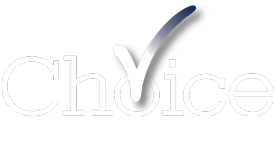Take a little time to review and refine your retirement strategy in the company of the financial professional you know and trust. Discuss the following topics to attempt to avoid financial shortfalls in your retirement plan.
Timing Social Security. As Social Security benefits rise about 8% for every year you delay receiving them, waiting a few years to apply for benefits can position you for higher retirement income. Filing for your monthly benefits before you reach Social Security’s Full Retirement Age (FRA) can mean comparatively smaller monthly payments.1
Managing medical bills. Medicare will not pay for everything. Unless there’s a change in how the program works, you may have a number of out-of-pocket costs, including dental, and vision.
Underestimating longevity. Actuaries at the Social Security Administration project that around a third of today’s 65-year-olds will live to age 90, with about one in seven living 95 years or longer. The prospect of a 20- or 30-year retirement is not unreasonable, yet there is still a lingering cultural assumption that our retirements might duplicate the relatively brief ones of our parents.2
Withdrawing strategies. You may have heard of the “4% rule,” a guideline stating that you should take out only about 4% of your retirement savings annually. Some retirees try to abide by it.
So, why do others withdraw 7% or 8% a year? In the first phase of retirement, people tend to live it up; more free time naturally promotes new ventures and adventures and an inclination to live a bit more lavishly.
Talking About Taxes. It can be a good idea to have both taxable and tax-advantaged accounts in retirement. Assuming your retirement will be long, you may want to assign this or that investment to its “preferred domain.” What does that mean? It means the taxable or tax-advantaged account that may be most appropriate for it as you pursue a better after-tax return for the whole portfolio.
Retiring with debts. Some find it harder to preserve (or accumulate) wealth when you are handing portions of it to creditors.
Putting college costs before retirement costs. There is no “financial aid” program for retirement. There are no “retirement loans.” Your children have their whole financial lives ahead of them.
Retiring with no investment strategy. Expect that retirement will have a few surprises; the absence of a strategy can leave people without guidance when those surprises happen.
Citations:
- Forbes.com, December 9, 2021
- SSA.gov, January 24, 2022
The information provided in this newsletter is based on carefully selected sources, believed to be reliable, but whose accuracy or completeness cannot be guaranteed. All information and expressions of opinions are subject to change without notice and are those of Choice Financial Services, Inc. Past performance may not be indicative of future results. Any information presented about tax considerations affecting client financial transactions or arrangements is not intended as tax advice and should not be relied on for the purpose of avoiding any tax penalties. You should discuss any tax or legal matters with the appropriate professional. Investing involves risk and you may incur a profit or a loss. Please carefully consider investment objectives, risks, charges, and expenses before investing.
Securities offered through International Assets Advisory, LLC (“IAA”) – Member FINRA/SIPC.
Advisory services offered through International Assets Investment Management, LLC (“IAIM”).
Choice Financial Services is unaffiliated with IAA and IAIM.






